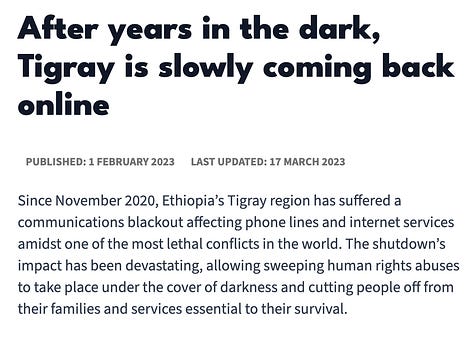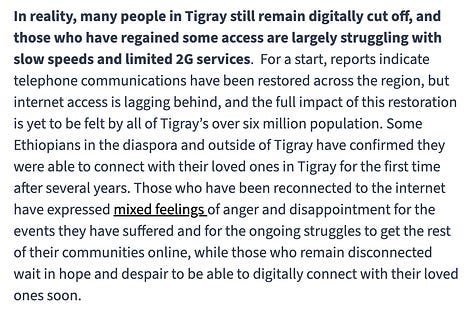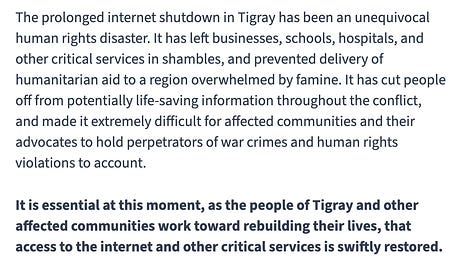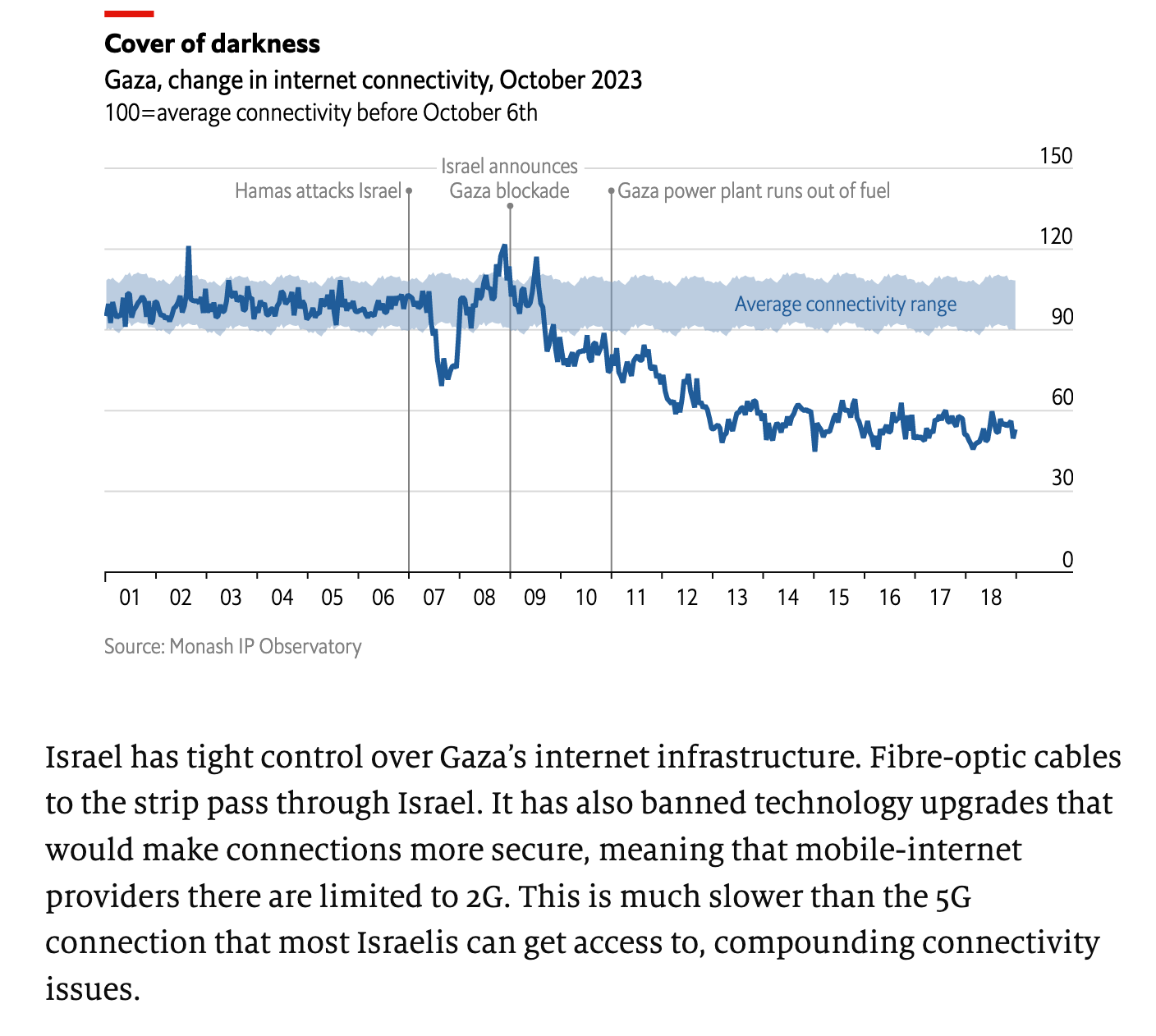The Internet Determines What is Remembered and Who is Forgotten
In Sudan, the internet access was cut off. In Tigray, the internet access was cut off. In Gaza, the internet access is being cut off. Have you noticed the stories dwindle?
For years I’ve spoken and written about the harms of social media and the urgency of divesting from these platforms. This month has catalyzed a fundamental evolution of that position. Instagram and Twitter are undoubtedly self-surveillance capitalism vortexes. And yet, a concurrent truth is that the same social media we as people in places like America and Europe come to and leave from at will, is a lifeline to millions of people who engage with these flawed digital territories as their only channels of being heard, being witnessed, and being advocated for by the ‘world’.
In Sudan, the internet access was cut off.
In Tigray, the internet access was cut off.
In Gaza, the internet access is being cut off. Have you noticed the stories dwindle?
Interrupting (and intercepting) internet access is a tool that authoritarian regimes strategically use to exploit the fragility of our attention spans in order to obscure their grotesque acts of violence.
People in Palestine are posting their last words on social media; they are pleading–“do not forget about us”. For as long as we are alive, for as long as our silence is a choice and not a sentencing–we can not afford to be quiet.
Social media can not and will not be the true frontier of decolonization. Shadow banning, algorithmic bias, and clout economics are undoubtedly detrimental to liberation movements. And still, engaging with social media as an apolitical playground is a position of privilege that we can not afford to surrender to.
Incompetent as it can be, the internet determines what is remembered and who is forgotten. And no, posting is not enough—but really, what *can* be enough in the face of brutalities of this scale?
What posting about these struggles does do is interrupt the attention economy. Posting calls to action, films, interview clips, questions and reckonings and devastations as they come to you—all of this plants seeds which, at scale, grow into forests that cleanse apathy from the air.
Yes, the posts will die down–just as they did after the summer of 2020. The profile pictures will change back to normal and yes, we will continue to continue to succumb to our contradictions. But the memories will linger. People who had never heard the word Zionism will know what it means. More of us will be armed with language—and with time, the death grip of propaganda and the myths it feeds us of powerlessness will decompose.
Palestine is ushering in—is DEMANDING—an expansion of our proactive consciousness. If we understand all struggles as connected, if we grow in curiosity and compassion and rigor, then we will see why we don’t know enough about Sudan —even as 6 million people have been displaced by the war there this year alone. If we understand all struggles as connected, we will have to confront the reasons we don’t talk about Tigray when for 3 whole years (2020-2023) the people resisting a genocide there were silenced by a strategic communications blackout. If we understand all struggles as connected, we will come closer to being able to process that the fact that we have smartphones at all is facilitated by the death and displacement of millions of Congolese who are unconsenting martyrs to the global demand for the minerals that power our devices.



As Gaza is plunged into a silence not of its own choosing, may we find the courage to interrogate our own. And even if it feels like there is nothing more to say, there is still more than enough to seek out, to invest attention in, reflect upon and learn from.
With Love and In Solidarity,
Neema





as a tigrayan who has been heartbroken by the lack of transnational solidarity, this is restoring my faith 🫶🏾🫶🏾
Thank you for this crucial reminder that all struggles are connected ( Sudan, Tigray, DRC, Palestine) and how totalitarian regimes always rush to cut the internet. Egypt did the same shutting down of all telecommunications when it didn’t want the world to know how brutal their crackdown was about to become in January 2011.